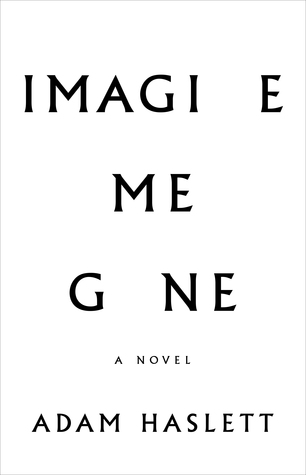 *I've read 95 books in 2016 so far. This blog is part of a series on my favorite reads of 2016. To put it simply, Imagine Me Gone is a wrenching portrayal of the toll that mental illness can take on an entire family; in this novel’s case, a wife and husband and their three children. Sometimes I shy away from books like this, which confront issues that I may be vaguely uncomfortable with and/or issues which I know are important but not quite the kind of book that I want to “escape” into. But as a reader, I found this book to be incredibly haunting and moving, in many ways infuriating and terribly sad, but in others, hopeful and inspiring. And as an anxious person (and I don’t say that flippantly, but as in, a person who experiences anxiety), I thought that this book was a necessary fictional representation of how mental illness can distort, lie, disturb, and ravage, and how its effects aren’t just limited to the individual immediately suffering from it, but also extend, in varying degrees, to those who love the individual and often can’t understand the path that the individual’s mind takes. (But to be clear, not every person suffering from mental illness has the kind of support that John and Michael do in this book. The lack of support/empathy/understanding surrounding mental illness--on a local and/or national/global level--is one of the sadder facts surrounding mental illness.) John, the patriarch featured in Adam Haslett’s Imagine Me Gone, internally describes his mental illness as the “monster” or the “beast.” This monster has haunted John for most, if not all, of his life, and he sees it replicated in his eldest child, Michael, a fact which makes him avoid and to some degree, reject, him. The family members showcased in Haslett’s book react to the characters’s mental illnesses in varying ways, and their responses are highlighted in each of their narrated sections which alternate between the past and present. What is so heartbreaking and lovely about this book is how each of the family members gives their greatest effort in this struggle, although it probably would have been easier not to. While it’s clear that there’s no shortage of love in this family, Haslett does a remarkable job of pointing out how isolating mental illness can be. These are notes from my own experiences with anxiety, which of course colored how I read the book: it’s hard to describe to someone how an anxiety or fear which you also dimly recognize is “irrational” feels unbearably rational to you. It’s hard to describe how your mind latches onto something and can’t let it go, and it’s hard to describe how you wish that you could just “get over it,” but you just can’t. While my own experiences with anxiety have been nowhere close to as severe and debilitating as the psychological difficulties the characters in the book face, I found that my own experiences did allow me to relate, in even a small way, to the characters in the book. This is not an easy book to read regardless, I think, of whether you can relate to the characters a lot or just a little, but it was an amazing reading experience. Imagine Me Gone is not just a beautifully written book; it also offers valuable insights into the resilience, strength, and love of families who deal with issues like this every day.
0 Comments
Leave a Reply. |
About me.Give me that HEA, please.
Join my mailing list.Want to receive a weekly email with links to my latest blog posts? Sign up below!
Archives
April 2024
Categories
All
|

 RSS Feed
RSS Feed
